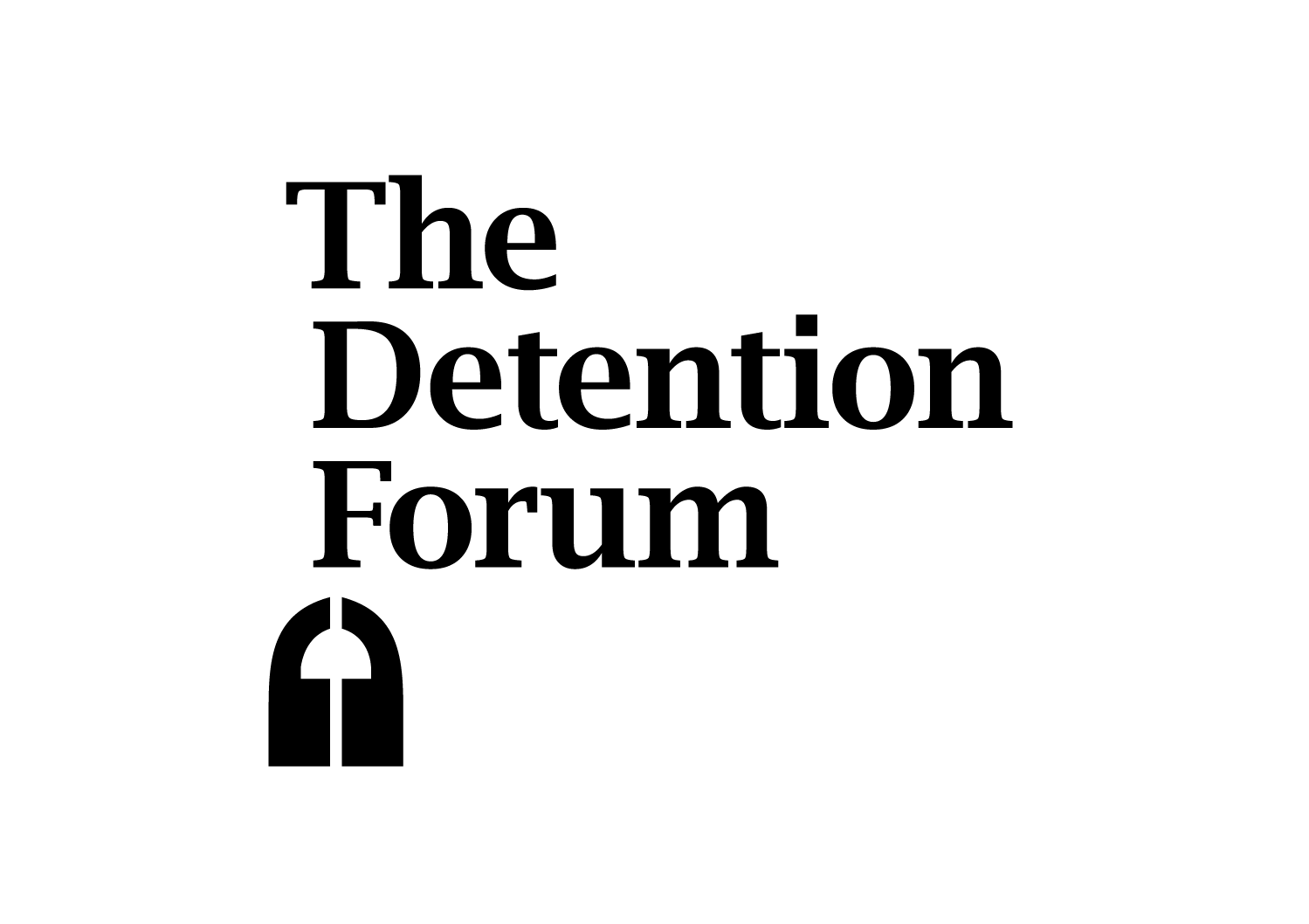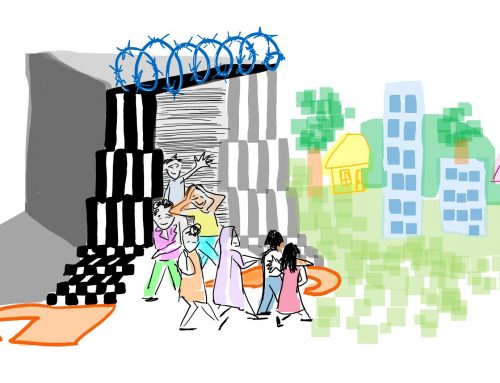Asylum and detention
We believe that the inhumane practice of detention should have no part in the asylum process (or indeed in a humane and just immigration system).
We firmly believe that we should not lock up people because of their immigration status. We believe that this is a fundamentally important principle. The current system of detention ignores people’s vulnerability, and by hiding people away in detention centres it exposes them to exploitative and abusive behaviour. We believe that any argument around promoting a hostile environment is redundant if, as is the case, your target audience is actually fleeing for their lives.
We believe that immigration detention should only be the absolute last resort. And we know that there is international evidence that if the process is seen to be fair and people are listened to that they are much more likely to engage with the process. This is why we believe that community-based case resolution is a far more effective way to conduct an immigration system than a default setting of detention.
We are further concerned that the Home Office wants to expand the detention estate with the new proposal for a new detention centre at Hassockfield in the North East. We believe that we there should be a continued reduction in the estate as we have seen in recent years. Detention has no part to play in a humane and just asylum system.
Hosting people in the community
We are concerned at the proposal to implement new reception centres for people seeking asylum. This country has developed, over the decades, a rich tradition of welcoming people by supporting them to live in the community as they apply for asylum. We believe that integration should start from day one, which can happen when people are hosted in the community, but placing people in reception centres runs counter to that belief.
Furthermore, the practice that we have seen the Home Office use over the last few months at the former army barracks at Penally and Napier have shown us the reality of these new reception centres. Barracks which were deemed inappropriate for military personnel, should not be considered appropriate for people seeking asylum. We further think that the use of such army barracks amounts to much the same as detaining all people seeking asylum. For the successful integration of such people into our community, we think that the proposal for new reception centres should be rejected.
Seeking asylum in the UK
We believe that people should have the right to seek asylum in the UK, and that these applications should be processed within the UK. We are very concerned at the proposals to develop off-shore processing centres for such applications. We know that this arrangement in other countries, such as Australia, has led to an official attitude of ‘out of sight, so out of mind’ with a lack of judicial oversight and the difficulty of providing individuals with adequate legal advice and support.
We want to see all asylum applications processed in the UK subject to a full and transparent system of accountability.
Safer routes
We are concerned at the Home Office proposal that a person’s route to the UK should be taken into consideration in their asylum application. When successive governments have closed down “safe and legal routes” (such as by the airline carrier charge), it is now almost impossible to reach the UK by what the Home Office would describe as a legal route. Indeed, worldwide, the vast majority of refugees cross borders without ‘correct’ documentation; they have no alternative. It is wrong to dismiss people’s claims due to their method of arrival, when the Home Office offers no detail about how people might be able to arrive in the UK safely and legally.
We maintain that the critical factor in determining whether someone deserves protection in this country is not their method of arrival but whether they face a fear of persecution in their own country.
The creation of a two tier system of refugee status is big concern to us. An individual who arrives “irregularly” may get asylum status, but for a very limited period with limited access to family reunion and welfare support. This is cruel but also counter-productive as it will hinder effective integration into our society.
Access to Bail
We are concerned about the proposal to create a duty on immigration judges to consider “non-compliance with proper immigration processes” as a factor in deciding whether to grant immigration bail. We are worried that this change will make it more difficult for people to get bail from detention centres.
Access to asylum support
We are also concerned about the proposal to “remove asylum support for individuals who fail to comply with our attempts to return them.” We are worried that this change will increase the barriers to people seeking accommodation out of detention and will lead to people being detained longer as a result.
Appeals
We are concerned by the proposal for an expedited system of appeals from detention, which we fear will be a return in practice of the discredited detained fast track scheme, which was stopped in 2015 after a successful legal challenge.
Furthermore, this plan seems to view judicial review primarily as a financial burden for the taxpayer that exists only so that migrants can challenge their removal decisions. It introduces policies that will reduce people’s ability to challenge Home Office decision-making. This change of policy can have no place in a humane and accountable asylum system.
There is an explicit assumption in the proposals that asylum seekers are deliberately delaying the process by introducing late new evidence or having numerous appeals. This assumption fails to recognise how difficult it is for people, who have been severely traumatised, to talk about has happened to them all at once to people they don’t know particularly in a hostile environment such as a detention centre. It also fails to acknowledge that the Home Office does get many initial decisions wrong. The fact that so many appeals get upheld demonstrates how poor this current process is.
The way to save money and reduce delays (as well as to behave in a just and humane way) is for the Home Office to improve decision making through, for instance, providing better access to legal advice and interpreting, and giving individuals the support that they need (where ever they are accommodated) to put forward their case. Home Office staff need to be trained in how to work with particularly vulnerable individuals such as victims of sexual violence and members of the LGBT+ community.
Community based alternatives to detention
We believe that people seeking asylum should be supported in the community through a system of community based case resolution. We think that this support should also be offered to people who have no more appeal rights, but may still have evidence to support their claim that they feel has not been listened to or who need help to explore their future options. We believe that this is a more cost-effective approach and has a positive impact on the individual.
Conclusion
We think that our asylum system does need reform, but the current Home Office proposals, (which are in the main ideas already suggested, and rejected, at earlier times by the Home Office) are not the answer. They run the real risk of undermining people’s legitimate opportunity to seek protection and to expand the use of detaining innocent people.
Our members feel that these proposals create a narrative of there being ‘deserving and undeserving’ people seeking asylum; we strongly believe that each individual case should be assessed individually to determine a person’s need for protection.
We furthermore think that this rushed consultation is no way to consult on this dramatic reform of the asylum system. And the tightly managed consultation with narrow questions is not the way to gauge how as a nation we should manage asylum or indeed how people who have sought and are seeking asylum feel about the system.
Our asylum system needs reform to make it compassionate and fit for purpose in the 21st century – these are not the changes that we need to see. We will continue to make the case for a humane, just and compassionate asylum system where there is no place for detention.





